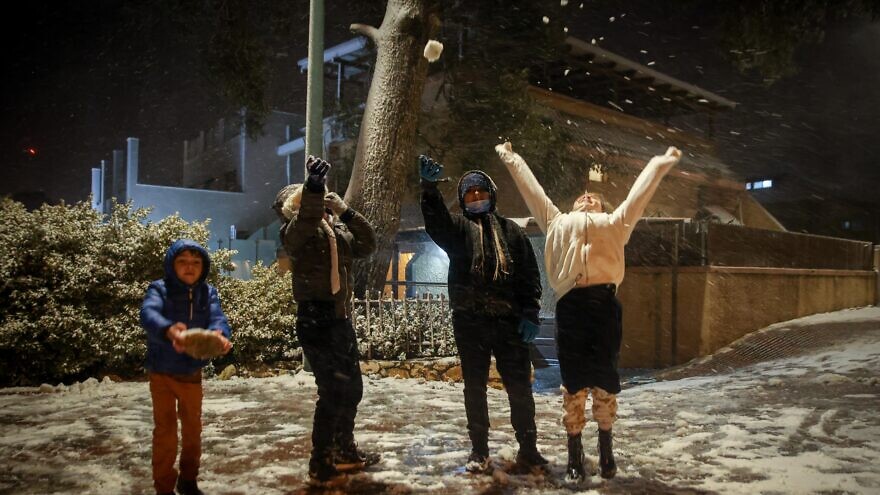Several neighborhoods in Jerusalem saw their first snowfall of the winter on Wednesday night.
Fearing ice formation on roads and sidewalks, Jerusalem Mayor Moshe Lion issued a directive that classes in the capital would begin at 9 a.m. on Thursday in all educational frameworks and that public transportation would start running one hour later than usual.
Snow also fell in the northern city of Tzfat and other peaks in the northern mountains, and also on Har Bracha in Samaria. Tzfat Mayor Shuki Ohana called on residents to stay indoors.
Due to the unusually cold weather, the all-time winter power consumption record was broken on Wednesday, as 14,735 megawatts were consumed simultaneously. Hundreds of power outages were reported across the country, and train disruptions have also been reported.
In the Golan Heights up north, schools were closed on Thursday.
This article first appeared in Israel Hayom.
Snow in the Golan Heights in northern Israel, Jan. 19, 2022. Photo by Maor Kinsbursky/Flash90.
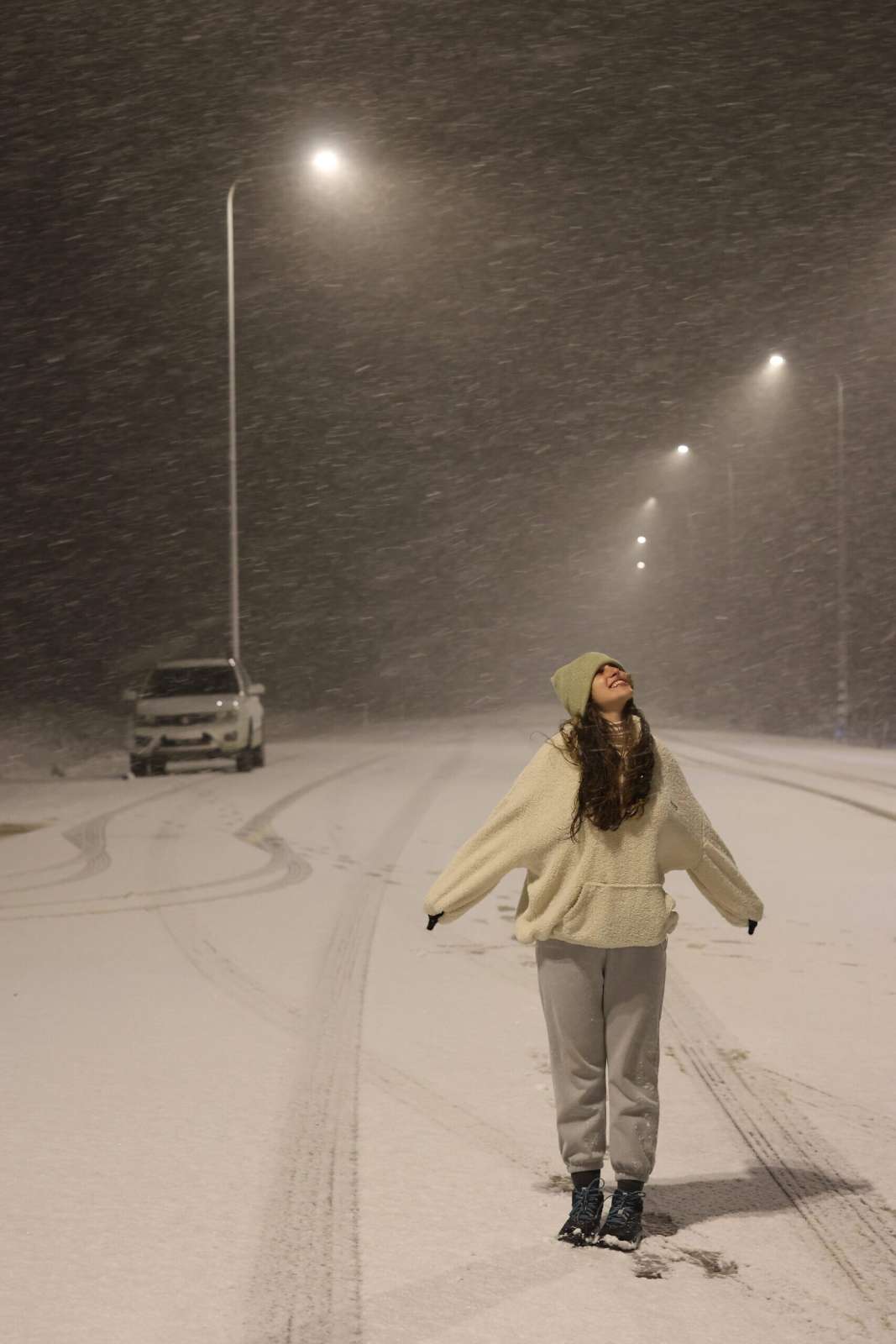
Snow in the Golan Heights in northern Israel, Jan. 19, 2022. Photo by Maor Kinsbursky/Flash90.
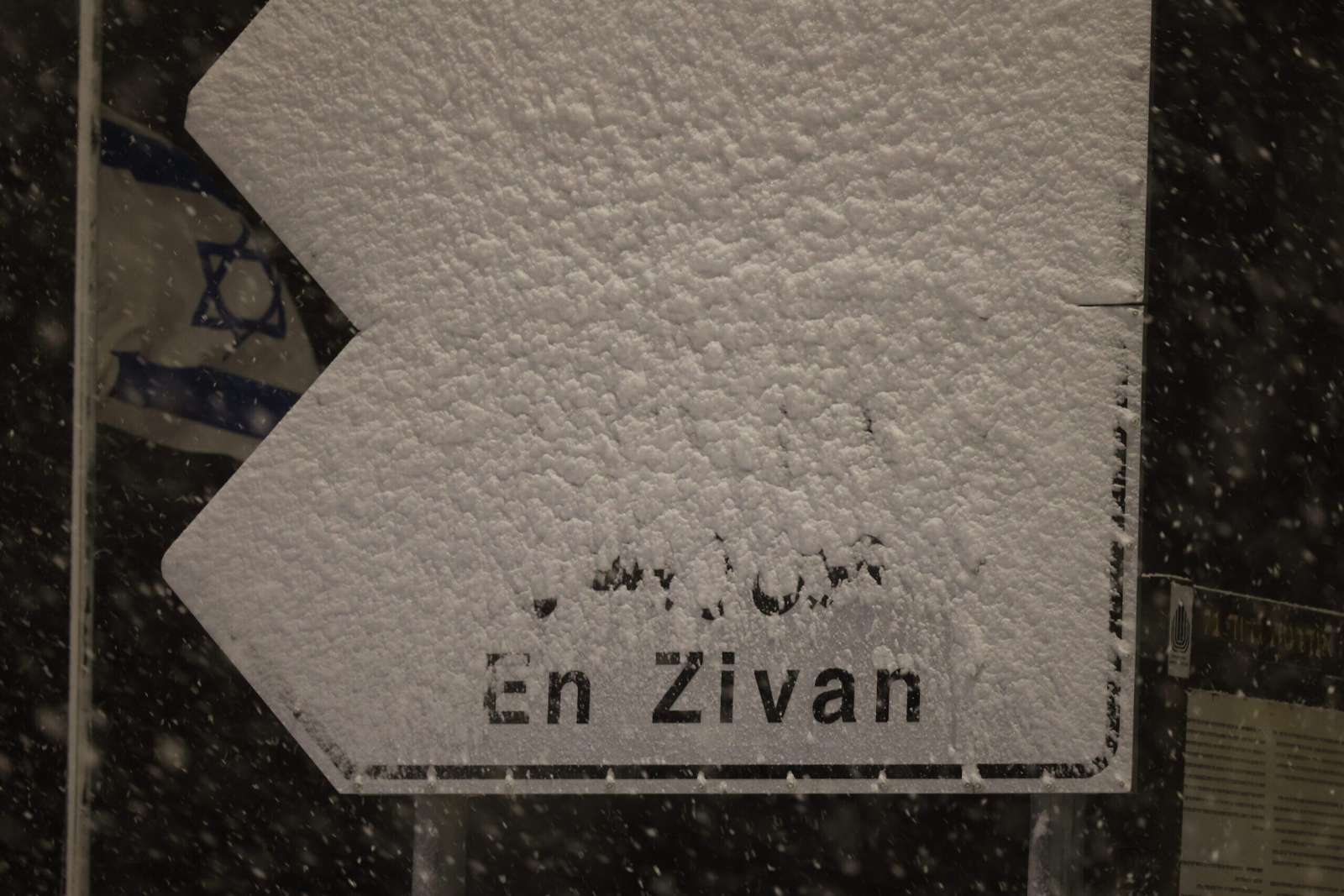
Snow in the Golan Heights in northern Israel, on Jan. 19, 2022. Photo by Maor Kinsbursky/Flash90.
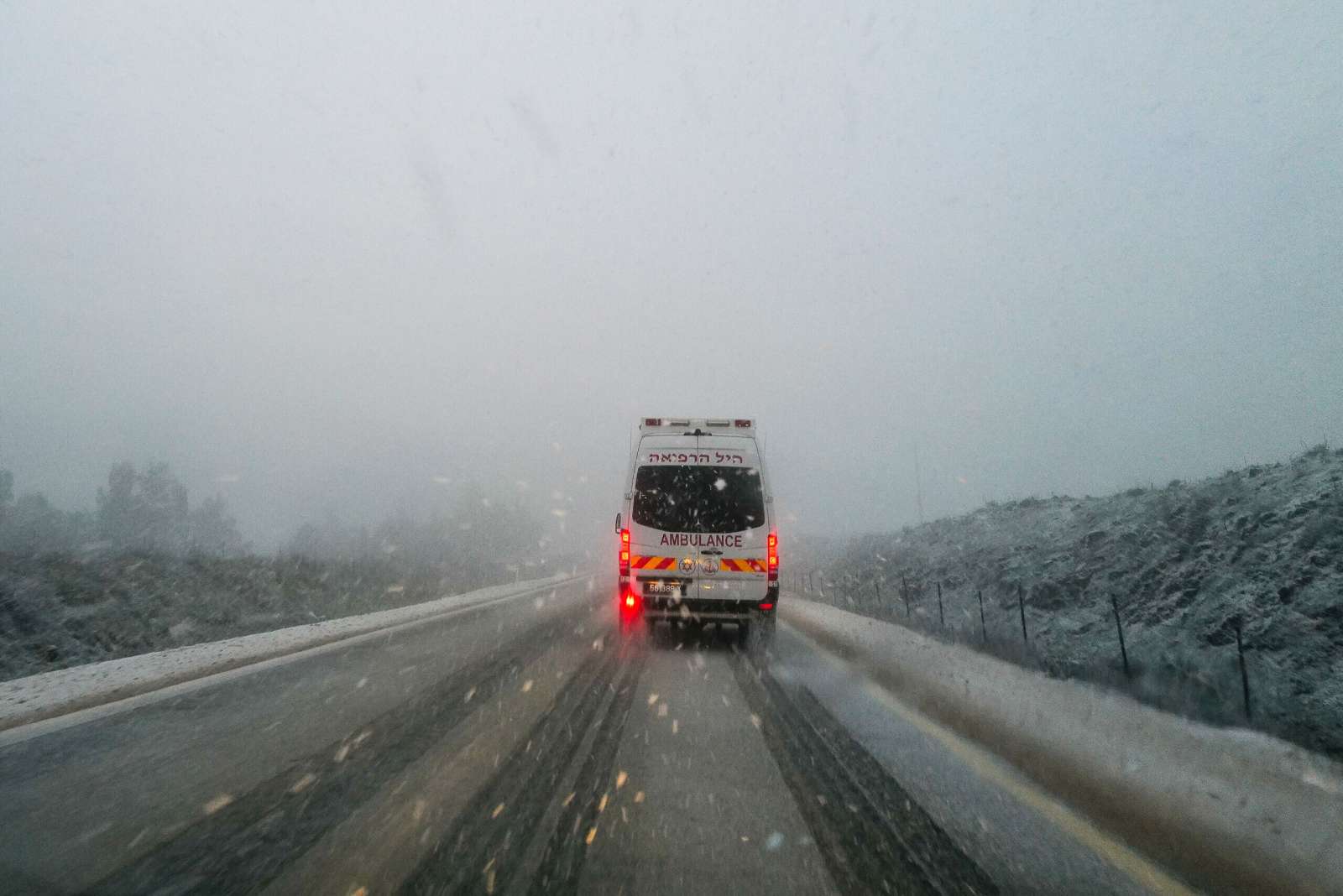
An ambulance drives through the snow in the Golan Heights, Jan. 19, 2022. Photo by Michael Giladi/Flash90.
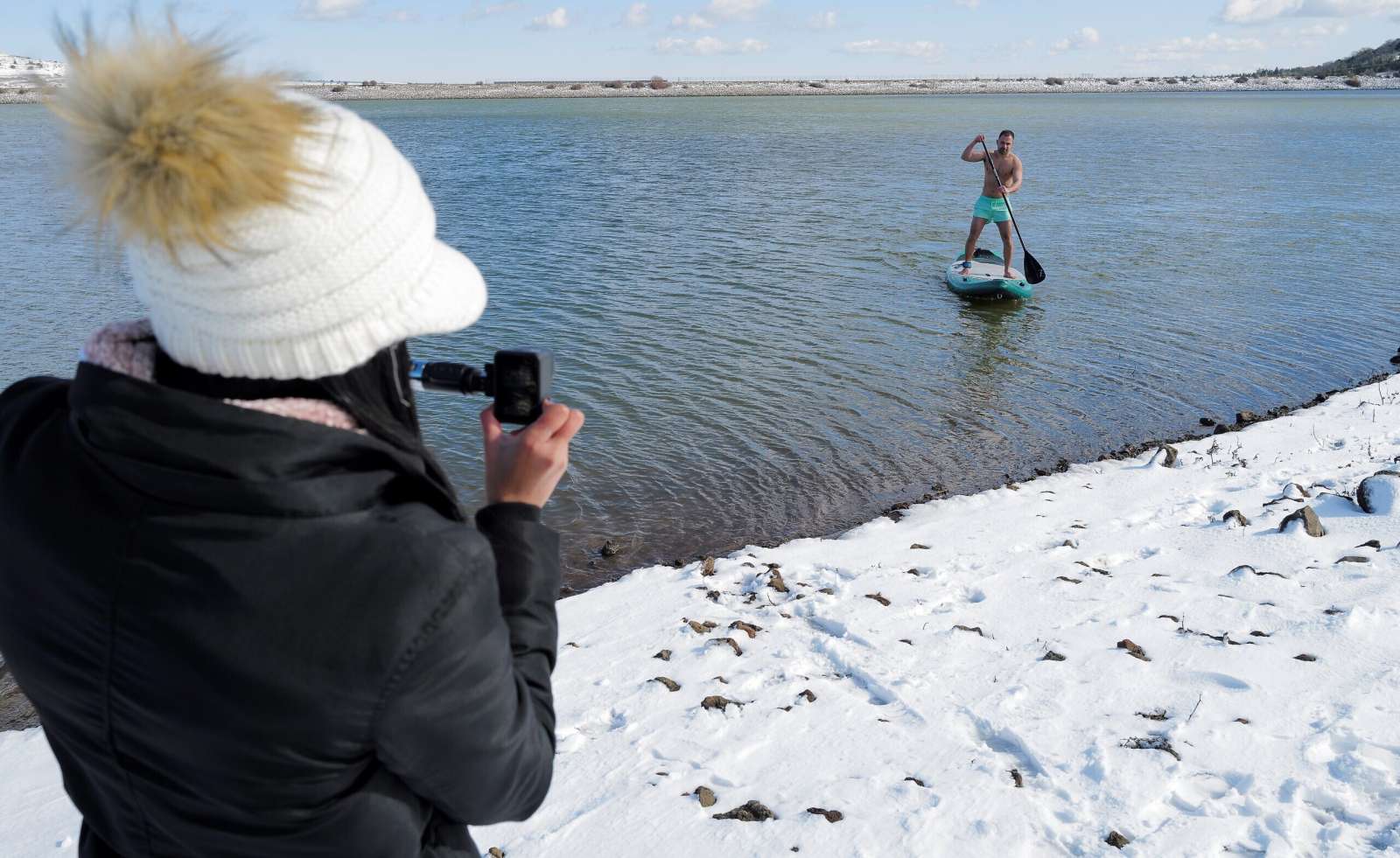
Despite freezing temperatures following the first snowfall, Israelis enjoy the abundant snow and warm spring waters near Kibbutz Merom Golan in the Golan Heights on Jan. 20, 2022. Photo by Michael Giladi/Flash90.
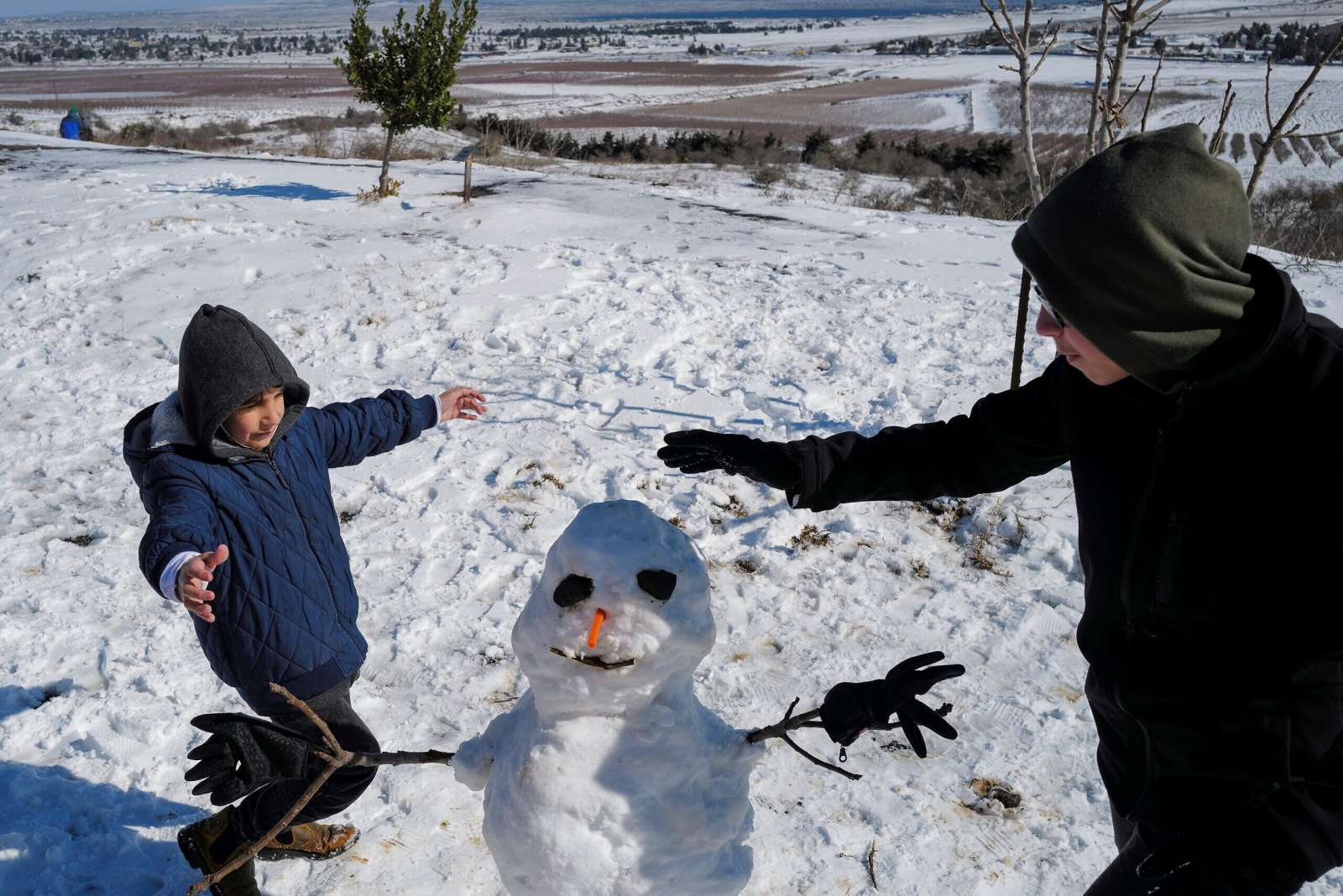
The first snow of the season brings out the snowmen, Jan. 20, 2022. Photo by Michael Giladi/Flash90.

Itzik Larry, director general of the Jerusalem Municipality, seen at the maintenance department during preparations to the snow, which is expected to fall in Jerusalem, Jan. 18, 2022. Photo by Yonatan Sindel/Flash90.
































